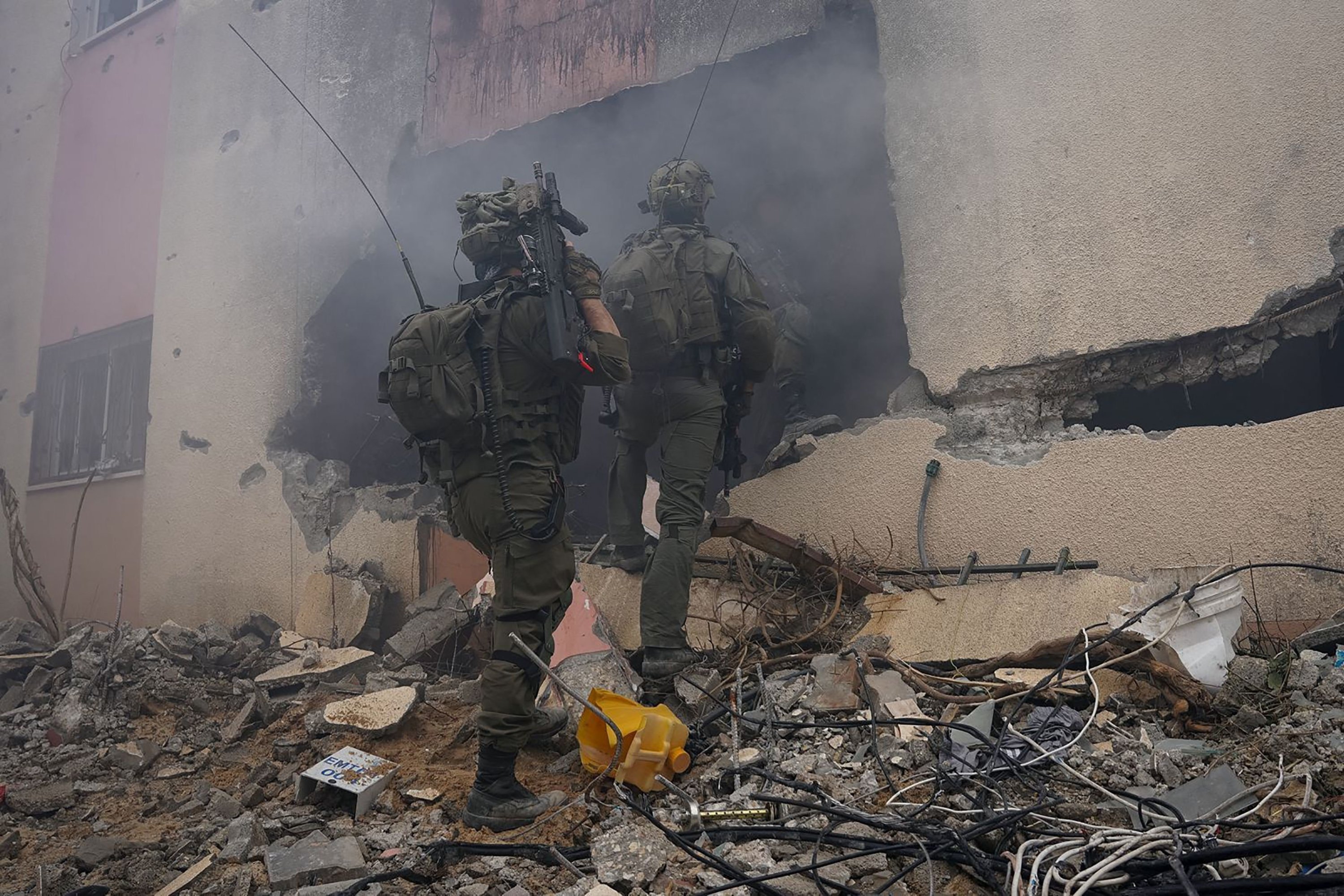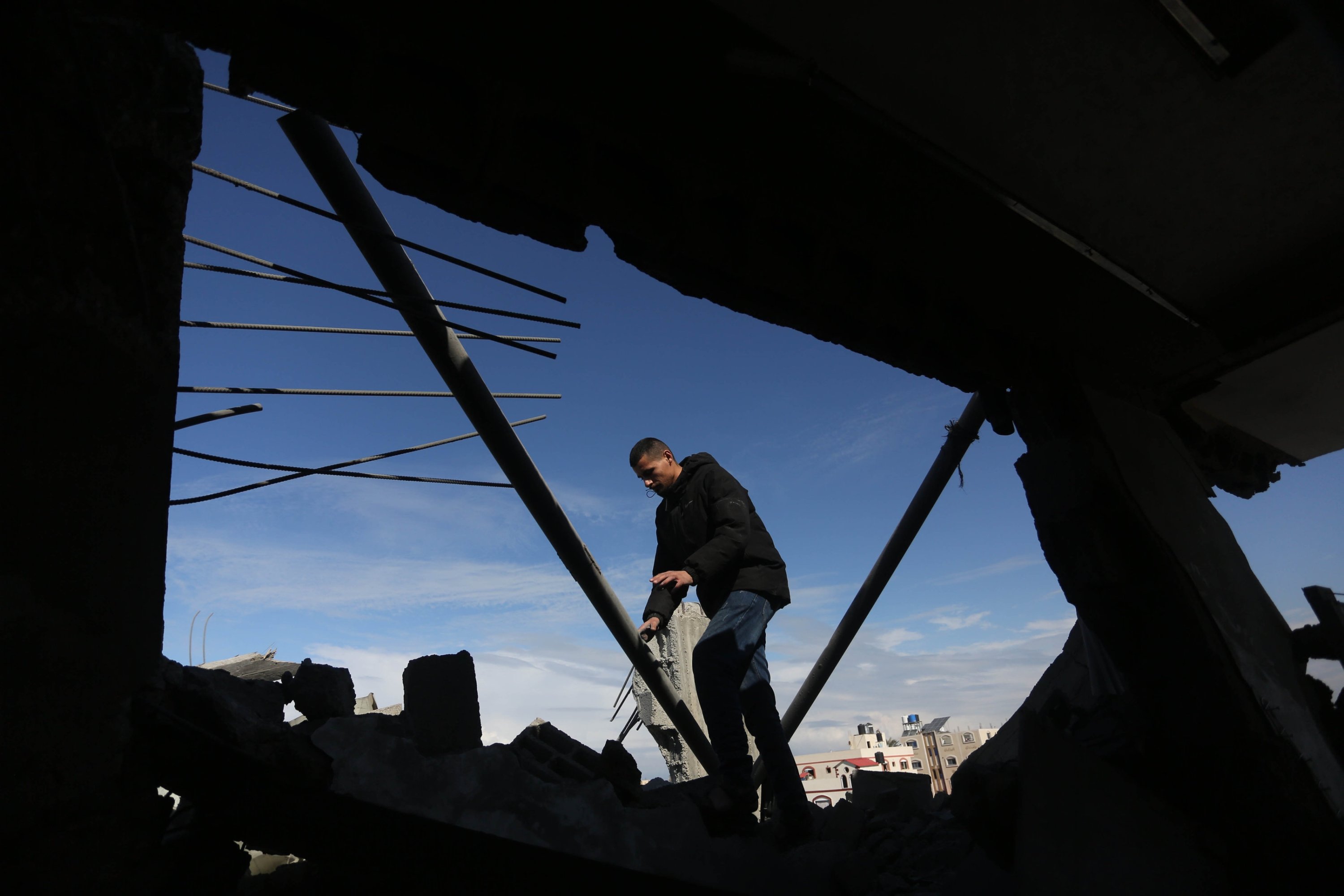© Turkuvaz Haberleşme ve Yayıncılık 2024
Gazans facing incessant bombardment hoped Monday that a visit by the U.S. Secretary of State Antony Blinken could finally deliver a truce amid Israeli threats of an assault on the enclave's last refuge, Rafah.
Blinken was expected to the Middle East for his first trip since Washington brokered an offer with Israeli input for the first extended cease-fire of the conflict.
The offer, delivered to Hamas last week by Qatari and Egyptian mediators, still awaits a reply from the resistance group which says they want more guarantees that it will bring an end to Israel's four-month-old war on the Gaza Strip.
The U.S. diplomatic push comes at a time when Washington is also trying to prevent further escalation elsewhere in the region, after two days of U.S. airstrikes against pro-Iranian armed groups across the Middle East.
Meanwhile, Israel has pressed on with its offensive in some of the war's most intense combat and threatened a new ground assault on Rafah, a small city where more than half of Gaza's people are now penned against the enclave's southern border abutting Egypt, mainly sleeping rough in makeshift tents.
The cease-fire proposal, described by sources close to the talks, would see a truce for at least 40 days, while resistance groups would free remaining hostages from among the 253 they captured during the deadly Oct. 7 incursion into Israel that precipitated the war.
It would let in aid to alleviate Gaza's humanitarian crisis and let Gaza's 2.3 million people return to homes abandoned during a war that has laid waste to much of the enclave. The only previous truce so far lasted one week.
"We want the war to end and we want to go back home, this is all that we want at this stage," said Yamen Hamad, 35, a father of four reached by messaging app at a U.N. school in Deir al-Balah in central Gaza. The area is one of the few where Israeli tanks have yet to advance and is now jammed with tens of thousands of displaced families.
"All we do is listen to the news through small radios and view the internet looking for hope. We hope that Blinken will tell (Israeli Prime Minister Benjamin) Netanyahu enough is enough, and we hope our factions decide in the best interest of our people."

In one of the biggest battles of the war, Israeli tanks have been advancing for the past two weeks in Khan Younis, the main southern city, which was already housing hundreds of thousands of internally displaced Gazans. Fighting has also resurged in Gaza City in the north of the Strip, in areas Israel claimed to have subdued in the first two months of the war.
The Israeli military claimed Monday its forces had killed dozens of Palestinian resistance members in areas of northern, central and southern Gaza over the last 24 hours.
Palestinians described heavy fighting in Gaza City, particularly its western areas close to the Mediterranean shore, which had come under bombardment from Israeli warships.
Palestinian health officials said they had recovered the bodies of 14 people killed in a strike on Khan Younis overnight. They have said repeatedly in recent days that rescuers are unable to reach many of the dead and wounded in the city.
Gaza authorities say nearly 27,500 Palestinians have been confirmed killed in Israel's assault, with thousands more dead feared unrecovered in the rubble.
After Israel announced last week that it was preparing for a potential ground assault on Rafah, international aid agencies and the U.N. said they feared the humanitarian consequences would be catastrophic, with no place left for residents to flee.
Gazans fear that a thrust into Rafah would drive them out of the enclave once and for all, into Egypt which rejects any attempt to force them across.
An Israeli official told Reuters that the military would coordinate with Egypt, and seek ways of evacuating most of the displaced people northward, ahead of any Rafah ground sweep.
A cease-fire now could head off such an assault but would mean Israel pausing without having achieved its stated aim of "annihilating Hamas." Some far-right members of Netanyahu's cabinet have said they would quit rather than back such a deal.
Netanyahu says he is committed to "total victory" and that any pause in fighting would only be temporary as long as Hamas members are still at large. Hamas says it will not agree on a truce or free its hostages unless it receives guarantees that Israel will pull out of Gaza and end the war.

The exiled Hamas chief Ismail Haniyeh said last week he would travel to Cairo to deliver his response to the cease-fire proposal, but he has yet to turn up there and Hamas has set no timetable for his trip.
A Palestinian official with knowledge of the negotiations told Reuters the Hamas response could come "soon," but it was up to Blinken to nudge Netanyahu to make the concessions that would get the cease-fire deal over the line.
"Netanyahu doesn't want to end the war. He wants a hostage release deal. That is far short of what our people will accept," the official said in an interview over a messaging app.
"Hamas, the Islamic Jihad and other factions want guarantees the occupation will be committed to ending the war on Gaza and pull out its forces from there. Those are the key demands," he said. "The Americans can restrain Netanyahu if they want to end the war and succeed in mediation."
